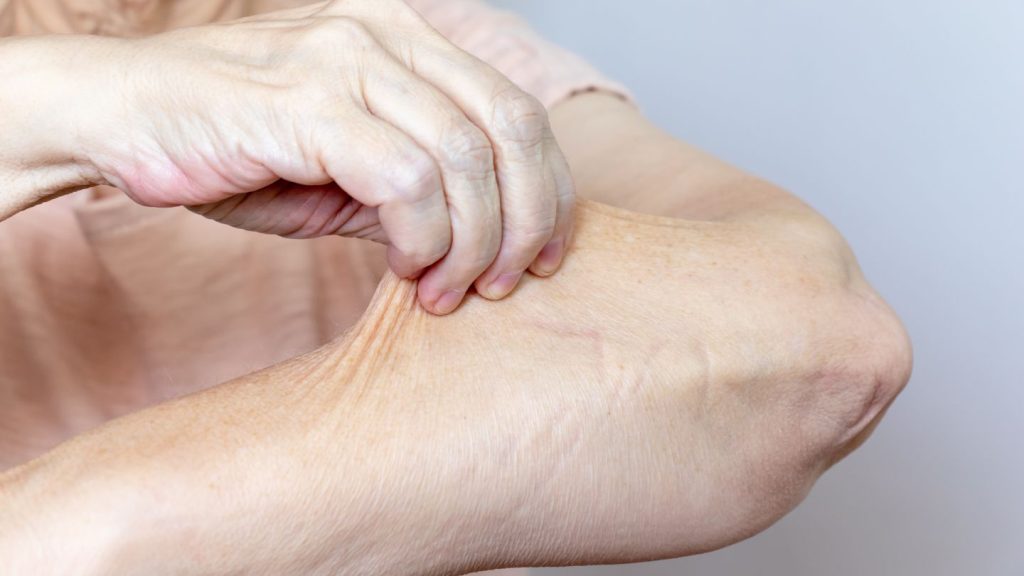
Can Loose Skin After Weight Loss Surgery Be Prevented?
Losing weight through bariatric surgery is a life-changing achievement that transforms health, confidence, and overall quality of life. However, many patients worry about what comes next, particularly loose skin after bariatric surgery. When the skin stretches to accommodate excess weight, it doesn’t always contract fully once the pounds come off. Understanding how to prevent loose skin after weight loss surgery involves strategic care, proper nutrition, and consistent post-operative habits.
Understanding Why Loose Skin Develops After Weight Loss Surgery
To understand how to avoid loose skin after weight loss, it helps to know what causes it. During weight gain, the skin’s elasticity is compromised as collagen and elastin fibers stretch. When substantial weight is lost, the skin may not have enough flexibility to shrink back completely.
Key factors include:
- Rate of weight loss – Rapid fat loss gives the skin little time to adapt.
- Age and genetics – Natural elasticity decreases with age.
- Lifestyle habits – Hydration, nutrition, and sun exposure influence resilience.
Loose skin isn’t guaranteed, but these variables heavily affect how the body responds post-surgery.
Before undergoing bariatric procedures, many candidates ask: Do I need to lose weight before weight loss surgery? In most cases, surgeons prefer that patients drop a modest amount of weight first, which can reduce liver size, lower surgical risk, and improve outcomes. Though not always mandatory, preoperative weight loss demonstrates commitment and helps smooth post-op recovery.
How to Prevent Loose Skin After Bariatric Surgery
Patients frequently ask how to prevent sagging skin, and while it may not be entirely avoidable, several proven techniques can reduce its severity.
1. Lose Weight Gradually
Even after surgery, gradual progress is key. Losing pounds too quickly can increase the risk of a saggy stomach after weight loss since the skin can’t tighten fast enough. A controlled pace allows collagen fibers to adjust naturally.
2. Stay Hydrated
Water is essential for maintaining elasticity. Aim for at least 64 ounces per day to keep the skin supple and improve recovery.
3. Prioritize Nutrition
Eating nutrient-dense foods helps the body rebuild connective tissue. Focus on:
- Protein for muscle repair.
- Vitamin C to stimulate collagen formation.
- Zinc and Omega-3 fatty acids for improved elasticity and wound healing.
4. Incorporate Strength Training
Building lean muscle mass fills out areas where fat was lost, reducing the look of loose skin after bariatric surgery. Resistance workouts are particularly effective in the arms, thighs, and abdomen.
5. Protect Against Sun Damage
Ultraviolet rays weaken collagen, worsening sagging. Regular sunscreen use and protective clothing are essential.
A critical part of preparation involves understanding the types of weight loss surgery. From adjustable gastric banding to sleeve gastrectomy to Roux-en-Y gastric bypass, each has unique benefits, risks, and recovery requirements. Awareness of these procedures allows patients to choose what aligns best with their goals and lifestyle.
Managing Loose Skin After Major Weight Loss

Even with strong preventive habits, some sagging stomach after weight loss is natural. The focus should shift to maintenance and comfort.
- Topical treatments: Creams with retinol or collagen can modestly improve firmness.
- Massage therapy: Encourages blood flow and regeneration.
- Compression garments: Help shape contours and minimize skin irritation.
- Professional treatments: Non-surgical options like laser therapy or radiofrequency tighten the skin by boosting collagen production.
Once the surgery is done, the journey continues, and the post-op period brings a new chapter: living life after weight loss surgery. This involves adapting to new eating habits, managing nutrient intake, staying active, and monitoring for complications. It’s not just about shedding kilos; it’s a complete lifestyle transformation requiring discipline and patience.
Learning how to avoid loose skin after bariatric surgery also means setting realistic expectations. Skin recovery is gradual, and the degree of tightening varies based on personal health and genetics.
When Surgery Becomes the Best Option
For some individuals, loose skin after weight loss surgery can hinder mobility, cause irritation, or affect self-confidence. In such cases, surgical removal, known as body contouring, may be recommended once weight has stabilized for at least 12 to 18 months.
Common procedures include:
- Abdominoplasty (tummy tuck) to remove excess abdominal skin.
- Arm or thigh lifts to refine upper- and lower-body contours.
- Lower body lift for comprehensive reshaping.
The pivotal question many ask is: Which weight loss surgery is best for you? There is no universal answer. The right procedure depends on medical history, BMI, comorbidities, and personal goals. A tailored recommendation from your surgeon ensures safety and long-term success.
Supporting Skin Recovery Holistically

Preventing and managing loose skin after bariatric surgery also requires mental resilience. Many patients experience body-image challenges despite the physical transformation.
To stay confident and motivated:
- Set achievable body-toning goals.
- Wear comfortable, supportive clothing.
- Focus on your health improvements rather than cosmetic perfection.
- Engage in support groups for ongoing encouragement.
Final Thoughts
Preventing loose skin after bariatric surgery requires a proactive approach that blends proper nutrition, hydration, exercise, and realistic expectations. By focusing on how to prevent loose skin after weight loss surgery, patients can enhance both recovery and confidence through consistent, medically guided lifestyle habits.
For those seeking expert post-operative guidance, Ascension Saint Agnes offers comprehensive care for weight loss surgery in Baltimore, including personalized nutrition management and advanced surgical contouring. Our team provides the support needed to achieve long-term results and improved body confidence.
Frequently Asked Questions
How can I avoid loose skin after weight loss?
Maintain a gradual rate of loss, stay hydrated, and prioritize strength training with a nutrient-rich diet.
Can exercise alone tighten my skin?
Exercise improves muscle tone and body shape, but cannot completely remove loose skin.
How to prevent loose skin after bariatric surgery naturally?
Combine hydration, protein-rich nutrition, and regular resistance training for optimal natural results.
When is surgery necessary for sagging skin?
When skin folds cause physical discomfort or psychological distress after maintaining a stable weight.